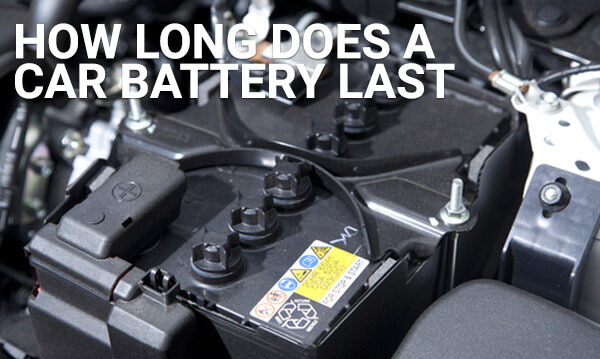Under ideal conditions, a car battery could last five years or more. However, you're rarely in ideal conditions and environmental factors like temperature and humidity can greatly shorten the life of your battery.
Typically, a car battery will last between two and five years. This is a fairly broad range and a battery doesn't always give you a sign it's about to die. Learn what shortens your battery's life and some of the signs it may be failing to save yourself from being stranded on a lonely stretch of highway or maybe it's time to sell your car.
Damaging Effects on a Battery
While many people think cold winter weather is harder on a battery, most batteries are actually more affected by hotter temperatures and excessive humidity. Your battery may not start one frigid morning in the middle of winter, but the drain on the battery most likely occurred during the hot summer months. This is why technicians often suggest you replace your battery before extreme weather changes as they tend to fail easier during transitions to freezing temperatures or extreme heat. Warmer climates, especially during heat waves, can increase damage in all lead-acid storage batteries due to sulfation, and water loss in wet cell/flooded batteries. Other causes of battery failure can include:
- Damaged charging plates (from overheating)
- Overcharging
- Undercharging
- Vibration
- Contamination
Our expert evaluators can help you get an accurate estimate for your cars value, FAST!

IT'S ALIVE! ... Now It's Dead
While some batteries show signs they're dying, often batteries just die with absolutely no warning . This maybe the time to change your battery or see if you will need to sell your car due to mechanical issues. Signs of a failing battery can be subtle, so take note of these indicators of trouble.
- Slower cranking or loss of cranking power on startup
- Takes longer to charge
- Holds charge for less time
- Interior lights or headlights dim
- Electrical systems come on and go off
- Accessories won't operate
- Check engine or battery light comes on
- Signs of leaking acid on battery
- Signs of corrosion buildup on battery terminals
On most batteries, there's a date stamp. This provides the month and year the battery was made and gives you a general idea on how long the battery should last. You should have your battery regularly tested to help gauge how soon you'll need to replace it. Certified technicians can often predict how long your car battery could last by factoring in the battery's age and the region you live and drive in. Once you can no longer recharge your battery, it's officially dead.
How to Extend Battery Life
According to the Car Care Council, the two main reasons for a shortened battery is extremely hot weather and overcharging. You can help keep your battery in tip-top shape and running longer with some regular maintenance. This includes having it tested regularly and keeping the battery terminals clean and tightened.
If you have a wet/flooded cell battery, you must regularly remove the caps to check the fluid levels in the cells. If low, top them off using only distilled or ionized water, not regular tap or drinking water. Extreme heat causes this liquid to evaporate quickly, which damages the battery's internal structure. Always check it more frequently on hot summer days. Dry cell batteries won't need the fluid levels checked, but will require other maintenance.
For any type of battery, keep the top of the battery free of dirt. The dirt acts as a conductor, which can drain battery power. Any corrosion that accumulates on the battery terminals can also become an insulator, which inhibits current flow. At any auto parts store, you'll find cleaning fluids made specifically for batteries. You can also make your own version at home using water and baking soda. Always turn the engine off and remove the negative clamp first, and then the positive clamp, prior to cleaning. Scrub the terminals and posts with baking soda; then rinse with water. Firmly reconnect the positive, then the negative, clamp. You should also attempt to keep the battery
When charging a car battery, you can either use a standard car battery charger or jumpstart it using another vehicle. Properly charging your battery helps ensure longer life. You never want to over/undercharge a battery.



